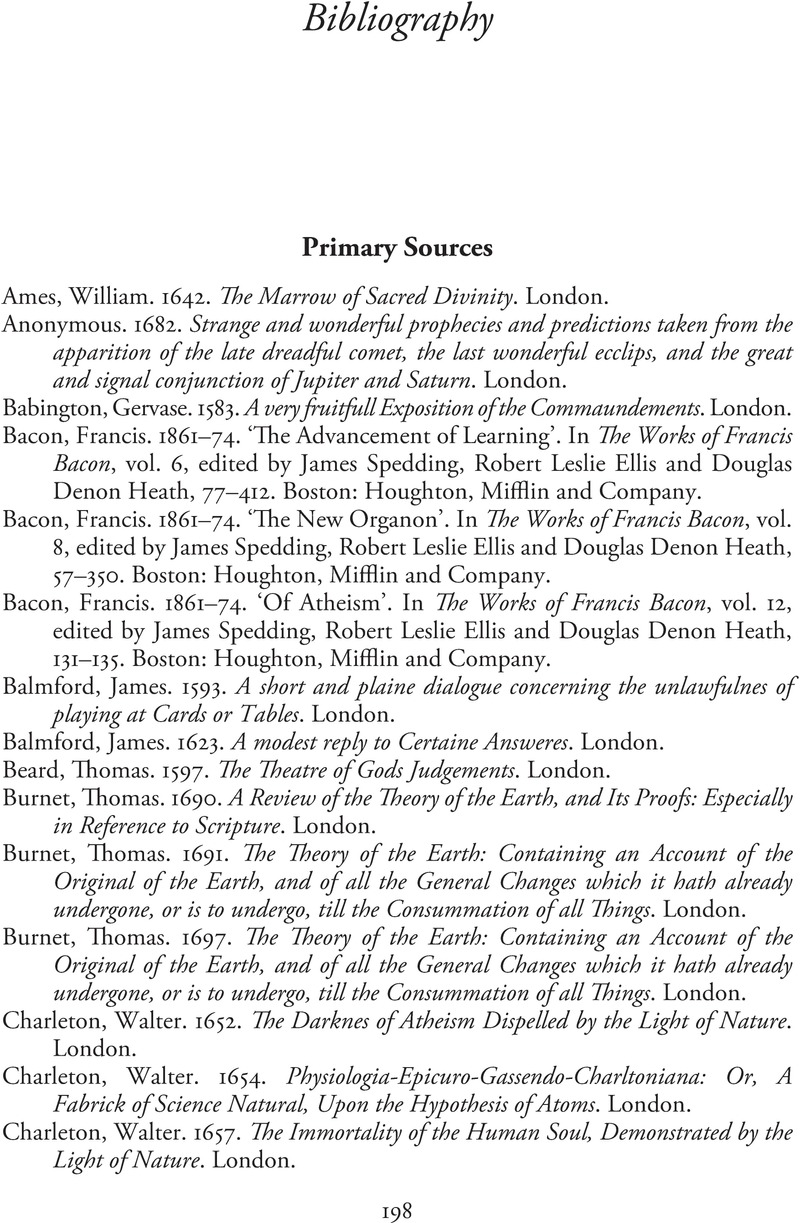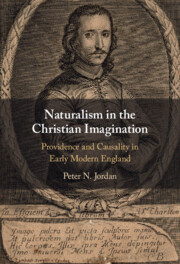Book contents
- Naturalism in the Christian Imagination
- Reviews
- Naturalism in the Christian Imagination
- Copyright page
- Dedication
- Contents
- Acknowledgements
- Part I Setting the Scene
- Part II Expanding the Explanatory Scope of Natural Causality
- Part III Curtailing the Explanatory Ambitions of Naturalistic Philosophies
- Part IV Conclusion
- Bibliography
- Index
- References
Bibliography
Published online by Cambridge University Press: 30 June 2022
- Naturalism in the Christian Imagination
- Reviews
- Naturalism in the Christian Imagination
- Copyright page
- Dedication
- Contents
- Acknowledgements
- Part I Setting the Scene
- Part II Expanding the Explanatory Scope of Natural Causality
- Part III Curtailing the Explanatory Ambitions of Naturalistic Philosophies
- Part IV Conclusion
- Bibliography
- Index
- References
Summary

- Type
- Chapter
- Information
- Naturalism in the Christian ImaginationProvidence and Causality in Early Modern England, pp. 198 - 216Publisher: Cambridge University PressPrint publication year: 2022



